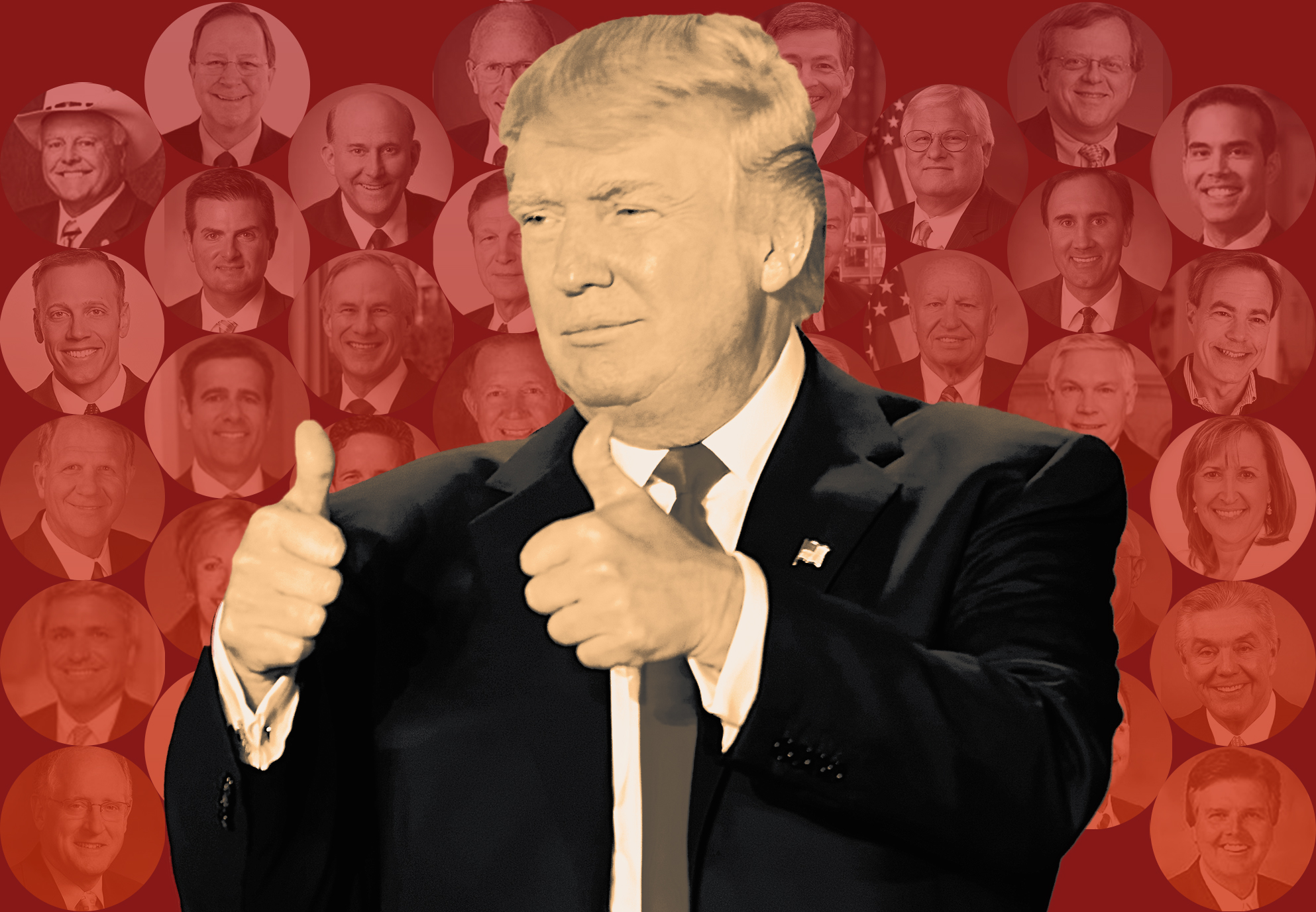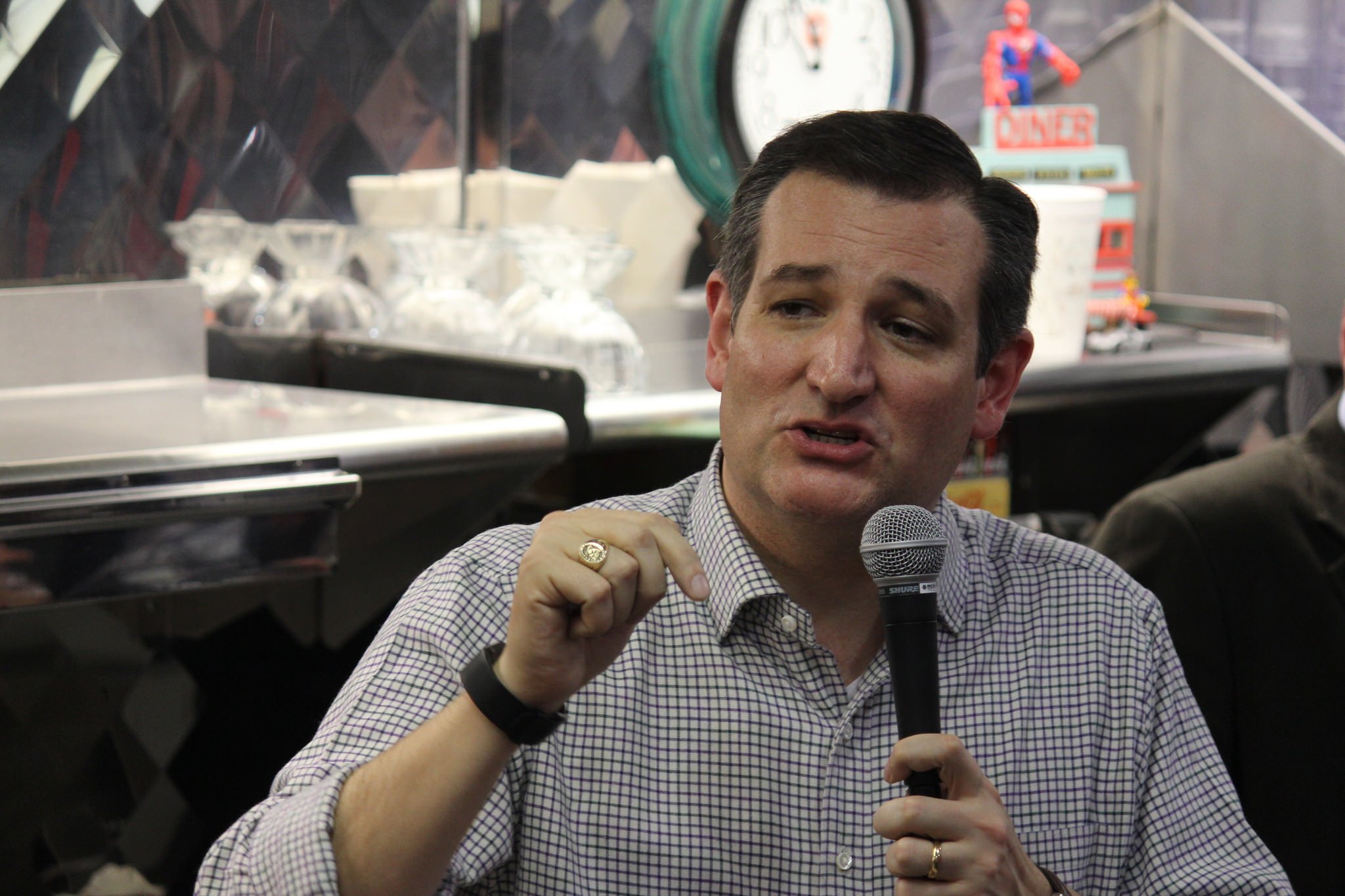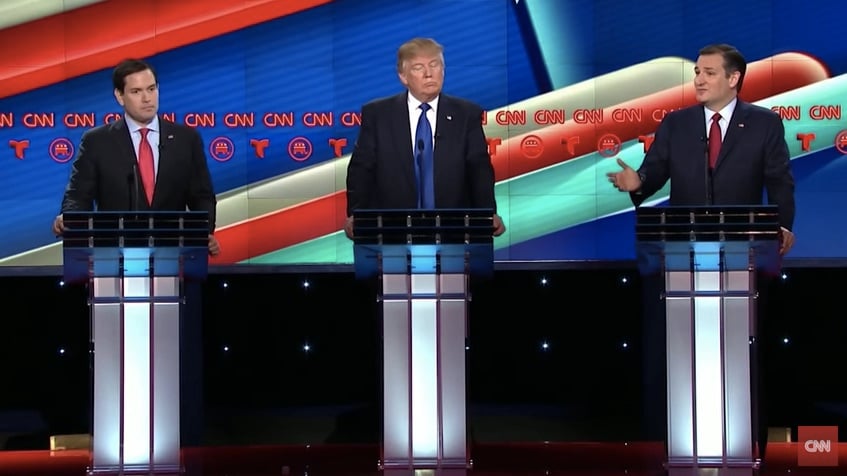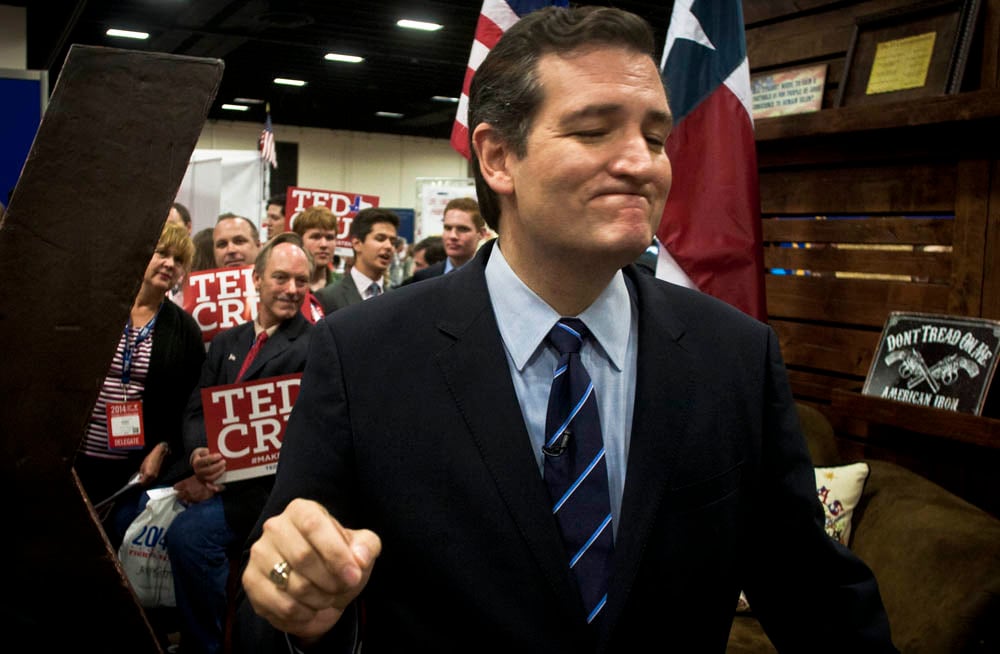
Ted Cruz Still Thinks He’s Ronald Reagan. He’s Still Wrong.

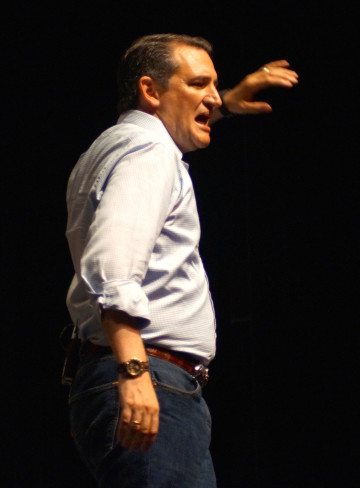
The Republican presidential nominating process has been a bit difficult to follow this year, in part because nearly everyone is “sure” that the top-polling candidates stand no chance of being actually nominated. So observers are left guessing who the “real” frontrunners are ultimately going to be. There’s a good argument to be made for Texas Senator Ted Cruz, who came to Houston on Monday to be endorsed by Lieutenant Governor Dan Patrick. Conservatives love him, even though he still polls pretty weakly, and some people think he’ll grab a lot of delegates in Texas and the South on Super Tuesday and catapult to the front ranks.
When in front of a friendly crowd, there’s one refrain Ted Cruz always hits. It goes something like this: It took Jimmy Carter to bring us Ronald Reagan. This election, just like 1980, can be the year a smiling right-winger ushers in a new era of political change after an extended period of weak-kneed crypto-conservatism and corrects America’s downward trajectory. In other words, Cruz is implying, he is the new Reagan. This is something he’s said for a long time. It’s a core part of his pitch, and a sentiment Patrick echoed yesterday as he endorsed Cruz, calling the senator a “true conservative” who would inspire conservatives “like they have not been inspired since Ronald Reagan last carried the banner for our party.”
The people who love Cruz love this. Reagan is the ur-Republican, and when Cruz aspires to re-run the ‘80 election, he’s promising nothing less than the spiritual cleansing and rebirth of both America and the party. It’s effective shorthand for the idea that conservatives should go all-in this cycle. So it’s worth teasing apart. Is Barack Obama like Jimmy Carter? Is 2016 like 1980? And is Cruz like Reagan — does he have the political skills to take advantage of the moment, if it exists?
1) Among movement conservatives, it is universally accepted that Obama is an unpopular disaster — that he’s proven incompetent and cowardly, and that the American people are waking up to his tricks. This is strangely divorced from reality, and points to the insular nature of the world of the Republican primary voter.
Barack Obama is actually pretty popular for a president who has been in office almost seven years. One recent poll pegged his approval rating at 51 percent. More than 75 percent of Democrats approve of the job he’s doing. At this point in the last administration, W.’s approval rating had dipped to the low 30s, and they would only get worse.
When Reagan was deciding whether to run a third presidential campaign in 1979, Carter’s poll performance was atrocious — the worst a post-war American president not named Nixon had ever had. His approval rating sunk as low as 28 percent in July of 1979 — even more damning, his approval rating by Democrats dipped below 50 and barely recovered before the election.
Now, Hillary Clinton is running, not Barack Obama or his vice president, of course. But the available polling would seem to indicate that the Democratic coalition has held together pretty well, and that the sitting Democratic president and his policies, by the standards of a lame duck president, are pretty popular. You will never hear movement conservatives reckoning with this fact. It would upturn their entire cosmology.
A lot can change in a year, naturally. In particular, the shaky global economy is something to watch. But many conservatives seem to think Obama has proved himself an abject failure in a way that sets the tone for a great swing to the right, obviating the need to carefully sell themselves to the middle. For the moment, this is not the case at all.
2) The election of 1980 really was a revolutionary moment. As the post-New Deal consensus frayed in the 1960s and 1970s, the intellectual foundation of the conservative revival built itself up from almost nothing, led by figures like Milton Friedman. The movement was waiting for a champion, and Reagan seized on that, tying together different political factions and making the new movement marketable to the general public with his smiling, jovial public image.
But as revolutionary as Reagan’s campaign in 1980 was, it’s worth remembering what it actually looked like at the time, and what American politics looked like at the time. Here’s a segment of one of Reagan’s debates with his major primary opponent, George H.W. Bush, in Houston in 1980. Try watching it through without falling asleep:
There are real policy differences here, which the two men express eloquently and without evident contempt for each other. Both men seek first to be thought of as credible. They seem like adults. It is not entertaining in the slightest.
If you need a reminder, here’s the most memorable moment from the first Republican debate, in which an auditorium full of Republicans cheered their party’s front-running presidential contender boasting about calling a woman a “fat pig.”
In two generations, the Republican party’s debates have gone from a real-time economics textbook to Married with Children. Something’s gone seriously wrong. This isn’t a primary process designed to pick a formidable candidate: It’s the selection of the loudest carnival barker, for the benefit of cable news outlets. The people who helped run the Republican campaigns of the 1980s are just as mystified as the rest of us, according to one recent New York Times report:
“I have no feeling for the electorate anymore,” said John H. Sununu, the former New Hampshire governor who helped the elder Mr. Bush win the 1988 primary there and went on to serve as his White House chief of staff. “It is not responding the way it used to. Their priorities are so different that if I tried to analyze it I’d be making it up.”
Reagan wouldn’t last two weeks in this vicious and stupid race — no past Republican president would. Reagan didn’t just run as a conservative in his primary: He sought to establish himself as a credible person, capable of leading the country as a whole and explaining conservative positions to people dissatisfied with the status quo. And even then, the 1980 election was closer than most people remember: Carter, as unpopular as he was, beat Reagan in most polls until the closing weeks of the race.
Cruz’s political skills are insular in nature. He’s not an especially charismatic guy outside of tea party meetings.
Cruz has only been elected once, in a state where general elections are essentially irrelevant. Certainly he scored a great victory in the Republican primary in 2012, when he defeated David Dewhurst. But he beat Dewhurst the way all Texas Republicans do — by appealing only to the right. His political skills are insular in nature. He’s not an especially charismatic guy outside of tea party meetings.
He has demonstrated an exceptional ability to appeal to movement conservatives. But if he were to win the nomination, the 2016 general election would be the first time Cruz faced the sustained task of winning over people who are not already in agreement with him in his entire political career. And he has shown no great skill at this so far, whether with firefighters or Middle East Christians or Houston businessmen.
That’s the tricky thing about Texas, if you’re a statewide elected official. It’s easy to be elected here, and the state gives you a great big platform in office. But the experience that being elected in Texas provides you is not easily translatable, in part because there’s no strong Democratic party to help train you. That’s one of the things that tripped Rick Perry up. It’s like being a boxer who only fights cardboard cutouts.
Cruz displayed great acumen in his 2012 primary run, and he’s showing that same skill now in this presidential primary run. In the course of that, he’s buddied up to Trump, taken stances that will alienate Hispanic voters in the general election, and showed he’s not afraid to be hated by other Republicans. Meanwhile, he’s going around the country telling conservatives that now is the time to go hard-right — that the Cruz Revolution is at hand. Barring some unforeseen catastrophe befalling the Democratic Party, it’s hard to see how that won’t prove a mistake. It’s also easy to see today’s Republican Party making that mistake.
